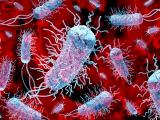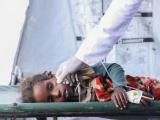May 27, 2010
Minnesota reports E coli cases linked to raw milk
Minnesota health officials have confirmed three Escherichia coli infections from consumption of raw (unpasteurized) milk bought from a dairy farm near Gibbon, Minn. The Minnesota Department of Health is urging anyone who bought milk or other dairy products from the Hartmann Dairy Farm, also known as MOMs (Minnesota Organic Milk), to discard the products. The milk may be labeled as organic, so consumers may be unaware the milk has not been pasteurized, the MDH said in a press release yesterday. An article today from the Minneapolis Star Tribune listed four cases (three confirmed as linked to the farm), in an elderly man, two schoolchildren, and a 2-year-old. The 2-year-old has developed hemolytic uremic syndrome, the story said, a complication of E coli infection that can cause kidney failure or even death. From 1998 through May 2005, nationwide 45 raw-milk-associated disease outbreaks were reported to the Centers for Disease Control and Prevention (CDC), accounting for 1,007 illnesses, 104 hospitalizations, and 2 deaths.
May 26 MDH press release
Six E coli strains emerge as food safety threat
Although much attention has focused on E coli O157:H7 as a leading cause of foodborne illness, other less common strains are emerging as threats, according to a New York Times story. One of these strains on romaine lettuce, O145, has sickened at least 26 people in five states, according to the CDC. Few food companies test for the six non-O157 strains, they are low on physicians' radar, and only about 5% of medical labs are equipped to detect their presence in patients, partly because testing for them is more difficult and time-consuming than for O157:H7. "This is something that we really have to look at," said Senator Kirsten Gillibrand, D-N.Y., who intends to introduce a bill that would define a broad range of disease-causing E coli strains to be illegal in ground beef and require the meat industry to test for them. The US Department of Agriculture (USDA) has been considering this move for 3 years, but the meat industry has resisted, saying the strains have not been a problem in beef and that current safety steps suffice to keep all strains at bay. The USDA has been reluctant to ban the additional strains of E coli in beef until it has tests that can rapidly detect them, which should be in place by the end of next year.
May 26 New York Times report
Novel treatment may protect against tularemia, plague, other pathogens
Scientists have developed a novel treatment that may protect against tularemia, plague, and other bacteria, according to a study in mice, reported today in PLoS Pathogens. The study was a collaboration among researchers from the National Institute of Allergy and Infectious Diseases's (NIAID's) Rocky Mountain Laboratories in Hamilton, Mont., Colorado State University in Fort Collins, and Juvaris Biotherapeutics of Burlingame, Calif. Researchers combined components isolated from the membrane of a weakened strain of Francisella tularensis, the tularemia pathogen, with the Juvaris product CLDC (cationic liposome DNA complexes). The combination stimulates a natural immune mechanism that kills invading bacteria and prevents their replication and spread, according to an NIAID release. Of mice that were treated with the therapeutic agent and then given a usually lethal pulmonary dose of F tularensis 3 days later, 60% survived. No mice survived when given the CLDC alone. The treatment also protected human immune cells against plague, brucellosis, and melioidosis, as well as tularemia. "A therapeutic that protects against a wide array of bacterial pathogens would have enormous medical and public health implications for naturally occurring infections and potential agents of bioterrorism," NIAID Director Anthony S. Fauci, MD, said in the news release.
May 27 PLoS Pathog study


















